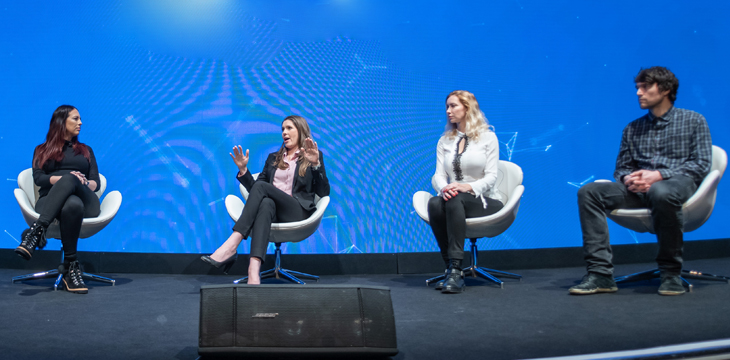|
Getting your Trinity Audio player ready...
|
“The first answer is always no.” That’s what Heidi Patmore of the South African wallet company Centbee finds when she’s trying to persuade big businesses to start accepting Bitcoin.
“For large retailers, you have to go right to the top to get any sort of traction,” she says, “and it takes a long time to tell that story and convince them that cryptocurrency is a good idea. The lead time is extremely long.”
The biggest incentive for large retailers is the promise to help their margins: “price is everything,” Heidi found, “if they can save half a percent on their banking fees or their transaction fees, that’s a massive saving for them”.
With small retailers, there are different priorities. For them, “it’s about developing the trust, that this is a good idea.” And for the ‘mom and pop stores’, Heidi found, “you have to go in with the killer use case.”
Surprisingly, Heidi says with smaller retailers, that’s not all about money: “you can’t go in with ‘you’re going to save a bit of money on your costs’ because they don’t really care about that. What they care about is ‘is this going to bring us more customers, is this going to make my life easier?’”
Heidi sees the smaller retailers as “a massive opportunity” because they “kind of get ignored” by the major credit cards and the banking system – to get a point-of-sale terminal, for instance.
For Elizabeth White of the White Company in New York, business people who haven’t thought about cryptocurrencies often have negative attitudes, picked up from the media, that need to be overcome before they’ll be persuaded to adopt: “the merchant needs to understand that it’s not about laundering money or drug money. We need to say that this is not what Bitcoin or cryptocurrency is about. It’s a technology that can actually help in the future – and it will be the future. ”
For Martin Dempster of Brewdog, professionalisation of the Bitcoin business is “really important, but we need to be careful that we don’t lose that really important disruptive message.”
Ima Samovich, CEO of Coppay, the Belarus-based payment gateway, has also been introducing crypto solutions to business. She says the sticking point is often the fear of risking their reputation on an untried technology: “they care about their stakeholders and shareholders and that’s why they don’t want to be in a rush to start accepting Bitcoin in their stores.” Instead they prefer to wait and see who’ll be the first to adopt it in their sector.
Listen to more from these contributors on this week’s CoinGeek Conversations podcast:
Please subscribe to CoinGeek Conversations – this is episode 9 of a weekly podcast series. Just search for “CoinGeek Conversations” wherever you get your podcasts, subscribe on iTunes, listen on Spotify or visit the CoinGeek Conversations website.
https://youtu.be/gBb9FSxfyVs

 02-12-2026
02-12-2026 




